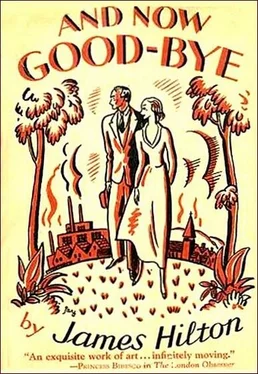Coverdale’s dream was now that Howat should ascend to far loftier pinnacles than that of mere preaching in country chapels. He saw in the boy a coming Spurgeon, and he wished him to have all the benefits that the completest religious training could provide. His idea was that Howat should spend a few years at a college for prospective ministers, and then astonish the world by eloquence made more tumultuous than ever by means of book-learning; the old man, whose education had been entirely self-acquired, had a pathetically simple belief in the efficacy of study and collegiate life. To Howat, however, the whole idea did not especially appeal; he was not keen on becoming a full-time professional minister, nor did he wish to give up helping Coverdale at the saw- mill. He liked sermonising as a sort of hobby, but he was not sure that he wanted more of it than that. A good many of his friends, too, were urging him to take up a political career, and several constituencies were nibbling at him as a prospective Liberal candidate for the next election.
Then, quite suddenly, Coverdale had a slight stroke. For the first time in his life he had to resign himself to the ways of a semi-invalid; the doctor said he would probably recover, but would never be the same again, and would certainly have to sacrifice the cast-iron routine to which his life had up to then been dedicated. To Coverdale this meant only one thing; he would have to give up the saw-mill, since he would not, while there was breath in him, neglect his religious duties. Unfortunately Howat, though a hard and willing worker, had no aptitude for business and could not, it was clear, take on the job of management; but at that time, as it chanced, the profits were considerable, and it was not hard to obtain a satisfactory offer of purchase from a big joinery firm in Maidstone. The deal was put through; the Coverdale family found themselves with some thousands of pounds comfortably invested in gilt-edged securities, and Howat, of course, was out of a job.
That was in May of the year in which he had turned twenty-one. Coverdale, now a retired gentleman, passed most of his time at home, greatly to the family’s discomfort; the immense seriousness of the problems of life and death weighed upon him more heavily than ever. He bought quantities of theological literature and studied it in a rather uncomprehending way; his mind was not attuned to subtleties, but he felt that the books would be very useful to Howat when he went to college. He had quite made up his mind that the boy should go, and Howat, with nothing else immediately in prospect, was also beginning to let such a future be taken for granted. Term began the following September, and the college, with which Coverdale had been in communication, had already signified its willingness to accept so promising an entrant.
But towards the end of June Howat went up to London for a concert; it would finish too late for him to return the same night, so he put up at a little hotel in Southampton Row which had been recommended him as cheap. It was the first time he had ever stayed overnight in London, and he was rather thrilled at being so completely on his own. The concert was not a public one; it was given by the students at a college of music, and Howat had been sent a ticket by a friend. A few men and girl students played Mozart and Haydn chamber music, not very marvellously, but with much enthusiasm, and afterwards there were ham sandwiches and lemonade and informal chatter round the piano. Howat got into conversation with several youths and was invited to join a party in somebody’s rooms in St. John’s Wood, close by; he went, and stayed there front eleven until the party broke up about three in the morning. As usual he was very shy at first, but after a time he found himself talking and discussing with the rest, and he even played over on the piano one or two of his own compositions, which were admired, though not excessively. A rather elderly man, well-known as a critic on a weekly paper, led him aside, however, and asked him if he intended to take up music composition seriously. “I don’t want to give you a swelled head,” he said, “but I think your stuff shows a certain amount of promise.”
That night, as he walked from St. John’s Wood to his hotel, with the first glimmer of dawn streaking the eastern sky, Howat saw the future clearly enough. He did not want to be a minister. He did not want to go into politics. His overwhelming triumphs in the pulpit and on the platform seemed tame and petty things compared with the very moderate amount of success he had so far achieved in the realm of music. He hated himself for having already wasted so much time. He felt that there was only one thing in life he could do, with any honesty of purpose; and that was to devote himself to the work that he loved, whether it would eventually bring success or not.
When he arrived at Kimbourne he made this decision known to Coverdale. He had guessed that the latter would be extremely disappointed, but he had scarcely been prepared for such a storm as ensued. Still less had he conceived it possible that Coverdale, in the heat of his excited protests, would have another and more serious stroke, rendering him speechless and partly paralysed.
During the days that followed, Howat spent hours at the old man’s bedside, stared at by quivering eyes that now, in default of words, had to perform the whole function of expression. Howat was stirred as he had been years before, on the occasion of the saw-mill accident; only now he felt a personal remorse; he knew that he had given Coverdale what might prove a deathblow. The odd thing was that no one else knew this; no one had heard the argument; no one suspected that Howat had changed his mind about the training college. If only the others had known all about it, Howat could have defended himself; after all, it hadn’t been really his fault—surely he had a right to please himself about his own future. But as he watched Coverdale through so many hours, he began to be oppressed with an emotion profounder than such comforting assurances; he began to doubt whether, after all, he had done right in flouting the old man’s wishes; and he heard again, as in a dream, the Beethovian chords that stood for the grandeur and magnificence of Coverdale’s beliefs. Remorse blackened and deepened upon him, and one afternoon, alone by the bedside, he was so moved that he knelt down, took Coverdale’s hand, and asked for forgiveness. He would go to college, he said, and would become a minister. The look in Coverdale’s eyes, instant and revealing, came to him then as a directly approving answer from Providence.
A kind of frenzy swept over Howat during that summer. He was definitely booked to enter college in September, and in the meantime he sought, with every atom of strength that was in him, to make amends for the harm he reckoned himself to have done. His sermons and prayers in the little chapels rose to impassioned intensity; he gave up all his political work, and took a leading part in an evangelist revival that was being conducted in the district. All this was reported to Coverdale and so encouraged his partial recovery that by August he was able to speak again, though slowly and with difficulty. His first words were to utter a prayer of thankfulness that Howat had at last ‘seen the light’.
Howat, in fact, was in an almost hysterically emotional condition and overworked himself dangerously; he discontinued all his music composition because he found that the revival he was assisting in left him no time for it; yet somehow, rather to his dismay, he discovered that he could not escape it altogether; casual airs and tunes often obsessed him when he walked hone at evening across starlit fields; all kinds of things, moreover, seemed to excite him emotionally in a way he had never exactly experienced before—the sight of sunset over the long ridge of the Downs, the distant hoot of a steamer entering harbour at night, the smell of hay in the noonday lanes. Sometimes at twilight he passed lovers strolling side by side, and though they presented no novel phenomenon, he was aware of them now, for the first time, as part of the strange insurgent problem to which only religion, he felt, could supply an answer. He was dimly conscious that love must be a very lofty and spiritual thing, and he was sure that if he ever loved a woman, it would be in such a way.
Читать дальше











